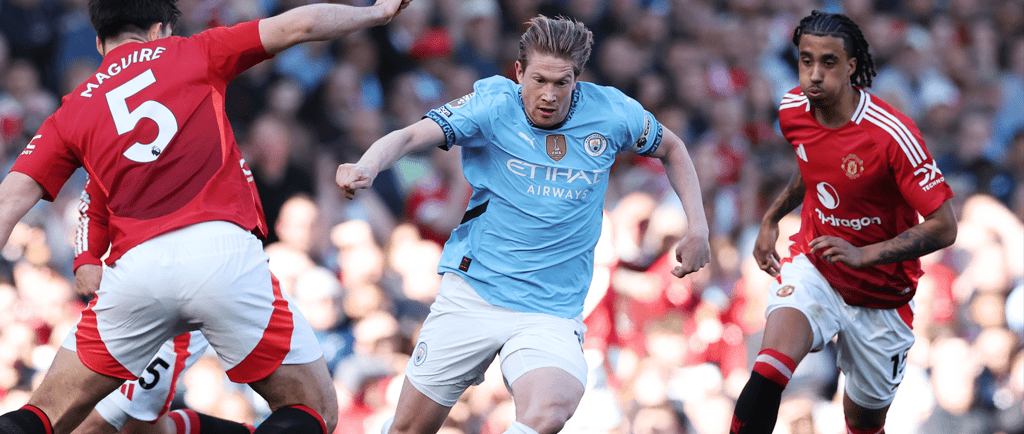MANCHESTER DERBY: WHEN THINGS GO WRONG IN FOOTBALL
A lifeless Manchester Derby ends goalless at Old Trafford — a fixture once filled with fire now felt flat and forgettable. In this blog, we reflect on the lack of spirit, passion, and what it says about where we are as a club.
DA
4/9/20253 min read


“It’s the Derby”, Roy Keane once said.
It’s one of world football's oldest rivalries, starting in 1881 when St. Mark’s lost to Newton Heath 3-0 at home. This was over a decade before the formation of the Football League in 1892/1893. That means this rivalry goes back before clubs started competing for major honours. It was about local pride.
Remarkably, the badges of both clubs contain a ship. This is tribute to the history of the City of Manchester, which was built on the wealth created in the cotton industry following trade with India. Yes – the city and both clubs were built, in part, off the skill and hard work of Muslims.
The motto of Manchester is “Concilio et Labore”, which means “wisdom and effort”. Indeed, both clubs have had that motto on their club badge for most of the 20th century. For most of the 1940s, both clubs played their home games at Maine Road (after Old Trafford was severely damaged during the Second World War). It is said that football fans would support one club one week and the other the following week.
Ultimately, both clubs were formed by and for the working-class people of Manchester who toiled during the week and wanted to watch their team show some wisdom and effort on the pitch to entertain them.
In the nearly 200 games since they first met, the clubs have changed names, colours, and even stadiums. Yet, the fans’ desire to be entertained, see their team be smart in their play, and show some willingness over 90 minutes remains the same.
Sadly, what was lacking through most of the game were those two key ingredients: wisdom and effort. United created the better chances, but that final ball was lacking every time; you could hear the groans from the fans when attack after attack ended without so much as a shot. Despite having an xG of 0.92 (compared to City’s .49), United only managed two shots on target.
City, too, failed to show enough desire to win this game; they had 58.5% possession. Yet, of their 740 touches, only 15 touches were in United’s box, compared to United having 29 touches in City’s box despite only having 578 touches overall. City seemed so preoccupied with passing the ball that they almost forgot the aim of the game is to score goals and win.
City may refer to Haaland and Rhodri missing, meaning their style of play was not as effective as it was designed to be. United may point to the squad still adjusting to the 3-4-3. Both are excuses.
You can talk forever and a day about formations, tactics, and strategy. Most games are won by the team that is smart in their play and puts in more effort. The Manchester Derby has never relied on league positions or individual players. Both teams should desperately want to win for the sake of their fans; sadly, neither team did.
They say history repeats itself. Another bit of history that both clubs share is that of financial scandal.
In 1902, Newton Heath was served with a winding-up petition because of debts. Four local businessmen invested money in the club to save it in exchange for an interest in the club; they subsequently changed the name to Manchester United.
After the 1904-1905 season, City was investigated by the Football Association for making additional payments to all of their players above the weekly salary cap. Their manager was suspended from football for life, and seventeen players were banned for a few years. It brought an abrupt end to the success the club had started to enjoy.
Over a century later, both clubs find themselves in similar positions. Sir Jim Radcliffe, a local businessman, has invested in United to save it from running out of money. City is awaiting judgment from the independent commission into potential breaches of financial fair play.
Both clubs still have something to play for. Perhaps what unites the fans of both clubs most right now isn’t the uninspiring 90 minutes of football but the knowledge that next season will likely be dictated by finances rather than wisdom and effort on the pitch for what remains of the season.
Community
Connecting fans worldwide, celebrating heritage and values.
Contact
info@mumsc.org
© 2025. All rights reserved.
Powered by IT CORE SERVICES LTD
